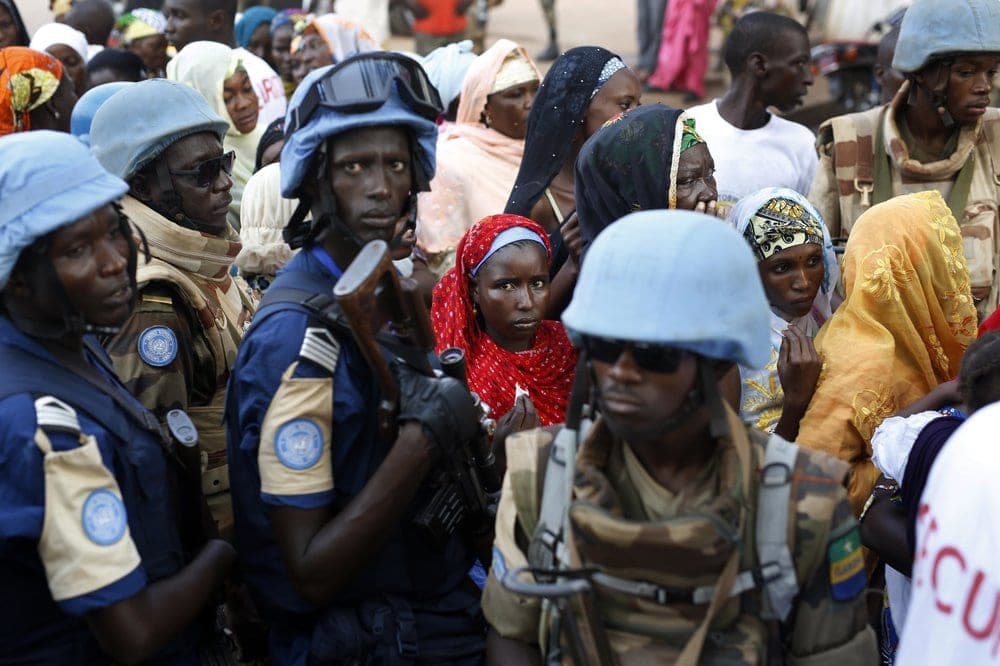YAOUNDÉ, Cameroon – As armed groups continue to control vast swathes of territory in the Central African Republic, the country’s bishops have called on the United Nations to lift the arms embargo imposed on the country in 2013.
The embargo imposed a year-long ban on the supply of arms, military equipment and related assistance to non-state actors in the country. It allows for the supply of arms to the CAR security forces, but this is subject to initial approval by the sanctions committee established by the resolution.
The embargo that was supposed to last just a year has been extended year after year, and is currently in force until January 31, 2019.
The bishops said that since the armed groups plaguing the country continue to procure arms illegally, the only effect of the embargo is that the army has been substantially weakened.
“With the election of a new leadership in 2016, the CAR came back to constitutional order,” the bishops said on Jan. 13, at the end of their plenary assembly.
RELATED: CAR bishops accuse UN peacekeepers of failing the country
A report to the UN Security Councils at the beginning of the year said “the influx of weapons from the Sudan, noted since January 2018, has resulted in UPC and FPRC fighters increasingly being seen with pistols and AK-type assault rifles, as well as rocket-propelled grenade launchers and machine guns mounted on their vehicles.”
“While the CAR, still under the yoke of the embargo, cannot procure arms for its own defense, armed groups are getting supplies in war equipment in the eyes of all. Under these conditions, does the embargo on arms not favor armed groups which continue to inflict terror, desolation and defy state authority? How can defense and security forces be trained without supplying them with the necessary arms?” asked the statement.
“The state is absent in vast zones of the CAR which are now under the control of armed groups. These armed groups repeatedly commit inhumane acts of violence and carry out grave violations of human rights.”
They said rebels have developed a particular interest in the country’s eastern region and questioned “what is behind the concentration of armed groups in the east of the country.”
Stop the in-flow of mercenaries
The bishops also said the country’s porous borders mean that mercenaries are coming in from countries like Chad, Sudan, Uganda, Cameroon and Niger, and this constitutes “an added factor of instability in the areas under the control of armed groups.”
“We call on the governments of these countries to show humanity by helping the CAR to come out of the anarchical situation for the good of the sub-region. In effect, a destabilized country becomes an international problem.”
Bishop Richard Appora-Ngalanibé of Bambari said that “many people have an interest in sustaining the chaos as a result of the natural resources of Central Africa, such as gold and dimonds, armed groups to supply their fighters, mercenaries from neighboring countries, including Chad and Sudan, but also western powers like France and Russia.”
“Everyone wants their own slice. A business of war has been rooted and civilians are bearing the brunt,” he told local media.
The Central African Republic has experienced instability since 2013, when Séléka, a Muslim-majority militia movement, overthrew the government. The Christian-dominated anti-Balaka militia then formed to fight the Séléka. French and African peacekeepers were deployed in January 2014 and drove the Séléka forces from the capital, Bangui.
With the government unable to exert authority beyond Bangui, armed groups and militias have taken control of more than 70 percent of the country.
As the security crisis continues to worsen, the country is now faced with a deteriorating humanitarian situation.
The UN humanitarian office estimates that 2.9 million people will need humanitarian and protection assistance this year, more than 63 percent of a population of 4.6 million people.
The African Union has been organizing peace talks between the government and rival factions, but there has been little progress being made.















